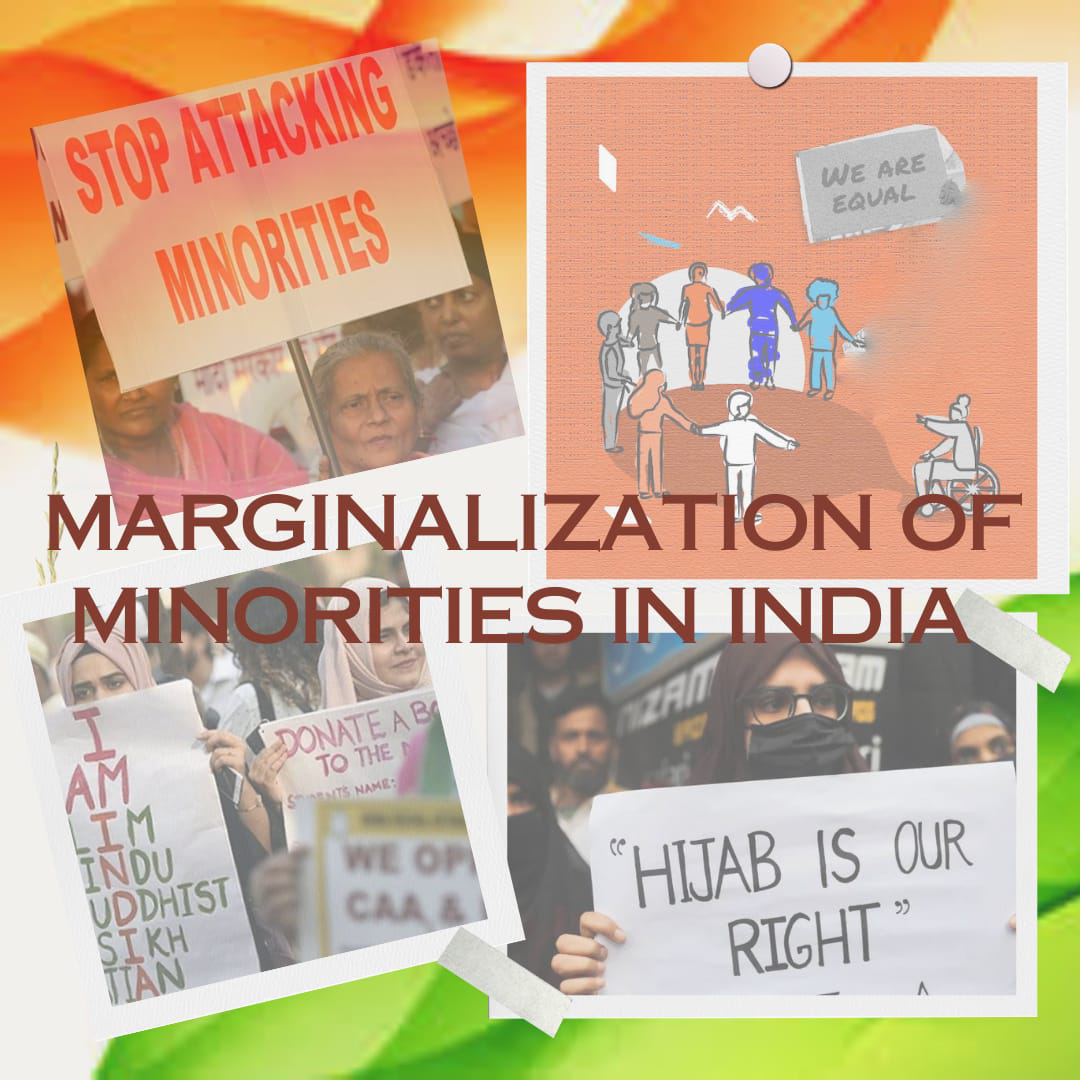Marginalisation Of Minorities In India
INDIA is a flower, whose beauty is contained in the unity of its people and their love and impartiality towards one another.
Being the second largest country in terms of population, India is home to a multitude of various religious communities. And being one of the largest democracies in the world, India glorifies the principles of secularism. But the types of cultural, religious, and social diversity, somewhere, lead to intersectional discrimination for the minority communities, and these challenges amongst the citizens of the country, affect more women in the minority community.
India, being a secular state, guarantees both in Article 29 and 30 certain rights to minorities. Article 29 protects the interests of minorities by making a provision that any citizen or section of citizens having a distinct language, script, or culture has the right to conserve the same. And it mandates that no discrimination to be done on the ground of religion, race, caste, language, or any of them. Article 30 (1) says that all minorities, whether based on religion or language, shall have the right to establish and administer educational institutions of their choice.
But in recent years, due to political developments, the issues of minority appeasement and minority harassment, whether we talk about the several incidents of mob lynching with Muslim community, or the decision to restrict funds to Missionaries of Charity, have come back to the forefront. Due to their different identities and their small number in society, the minority community has developed a feeling of insecurity about their lives, assets, and well-being.
Hence, the indifference towards the minority community and political parties focusing on the division of citizens on the basis of their communities have majorly affected the development of the country as a whole, whether it is economically, on the basis of health status, or on the basis of the literacy rate.
All these problems have generated a trust deficit between the minorities and the majority, which ultimately is harmful to the unity and integrity of the country.
At the end, I would like to conclude by quoting UNO’s charter statement regarding the significance of minorities:
“Minorities enrich the societies of each and every country in the world.”
“Promoting and protecting their identity prevents forced assimilation and the loss of cultures, religions, and languages—the basis of the richness of the world and therefore part of its heritage.”
About the writer
Kaniz Butul Haya Niazi is pursing Bachelor's from the Department of Statistics, Aligarh Muslim University.





.jpg)


Post a Comment